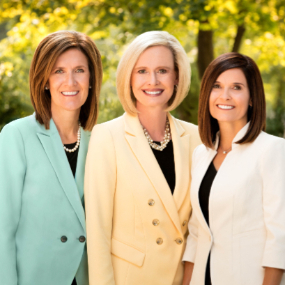
Youth-standing-in-group-outside
A group of young men and young women stand together outside. The Church released a new “For the Strength of Youth” guide in October 2022.© 2022 by Intellectual Reserve, Inc. All rights reserved.
This story appears here courtesy of TheChurchNews.com. It is not for use by other media.
By Young Men and Young Women General Presidencies, Church News
Since the introduction of the “For the Strength of Youth” guide, there has been a lot of talk about standards — and that is a good thing.
The guide is an invitation to talk about standards in a new and different way. Instead of going right to the rules, we can ask questions to help lift our youth to the higher ground of being guided by principles and personal revelation.
The following are two experiences of parents using principles in the new “For the Strength of Youth” guide to help their youth make decisions.

Young-Women-General-Presidency.jpeg
Young Women general presidency: President Bonnie H. Cordon (center); Sister Michelle D. Craig, First Counselor (left); and Sister Rebecca L. Craven, Second Counselor (right).2022 by Intellectual Reserve, Inc. All rights reserved.
A Mother’s Experience
“Recently my 17-year-old daughter had plans to go to a high school dance. The youth she was going with were coordinating their outfits. Most of the girls in her group wanted to wear a style that was immodest. My daughter came to me and asked, ‘What should I do?’
“Before October 2022 general conference and the new ‘For the Strength of Youth’ guide, I probably would have been tempted to give her a lecture including the words, ‘You are absolutely not wearing that dress!’ However, with Elder Dieter F. Uchtdorf’s talk in mind, I asked, ‘Well, what do you think?’ She sighed audibly and gave me a look that communicated, ‘You mean I have to do the work to find this answer on my own?’
“In the past we have had many conversations on the topic of modesty, and so it has been on her mind for a long time. I followed up with more questions: ‘What do you know about the principles in the guide? What does it mean that your body is sacred? What does it mean that Heavenly Father wants us to see each other for who we really are and not just physical bodies? What can we learn from the scriptures and temple recommend questions listed in the guide? Where else can you go to find out what God wants you to do?’
“The next day I asked her if she had decided one way or another, and she said she felt like she’s making a big deal out of such a little thing. She said, ‘I wonder if such a little thing even matters to Him.’ I assured her that it does and asked, ‘Have you prayed about it?’”

Brad-Wilcox-YA
Young Men general presidency: President Steven J. Lund; Brother Ahmad S. Corbitt, First Counselor (left); and Brother Bradley R. Wilcox, Second Counselor (right).2021 by Intellectual Reserve, Inc. All rights reserved.
A Father’s Experience
“My son came home from school in early October and said his friends told him that Elder Uchtdorf announced in conference that now tattoos are OK. He said, ‘Dad, I want to get one.’ My first response was to say, ‘Over my dead body.’ Instead, I asked, ‘Have you even heard Elder Uchtdorf’s talk?’ I knew he hadn’t because he only listened to the Sunday sessions. I asked, ‘Have you read the new “For the Strength of Youth” guide?’ Again, I knew he hadn’t. I told him that once he did, we could talk about it again.
“A few days later he came to me and said he had read the talk and the guide. I asked, ‘Did Elder Uchtdorf announce that tattoos are OK?’ He said, ‘No. In fact, he said, The Lord is not saying, “Do whatever you want.”’ I asked, ‘Does the guide say tattoos are OK?’ He said, ‘It says we are supposed to honor the sacredness of our bodies, even when that means being different from the world. It says that we must make wise decisions — especially when they can have lasting effects on our bodies. But, Dad, it doesn’t say we can’t.’
“I responded: ‘It doesn’t say we can’t rob a bank either but that doesn’t make it a smart choice. What does your discipleship call on you to do? You know how I feel about it. Maybe it is time to ask how Heavenly Father feels about it.’”
Conclusion
Both of the above experiences have endings that we purposely have not shared because the point is not what these particular youth decided. Rather, it is to emphasize how these parents used questions to guide the youth toward values, principles and doctrines. Most importantly, they asked their children to seek personal revelation.
Is it wrong for parents to say no? Is it wrong for parents to have and enforce rules? Of course not. We are responsible for teaching children and youth as they learn and grow. These parents are good examples of helping their teens do the work required for making a good decision. The conversations stayed focused on the reasons for the rules and not the rules themselves.
The mother who shared the above experience said, “Telling my daughter what she should or should not wear would have been much easier for both of us, but it would not have helped her learn how to be an agent unto herself.”
Copyright 2022 Deseret News Publishing Company.
